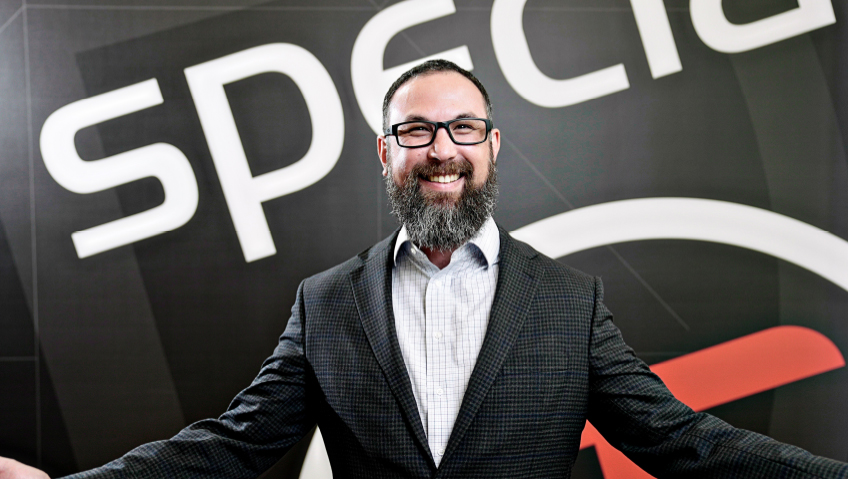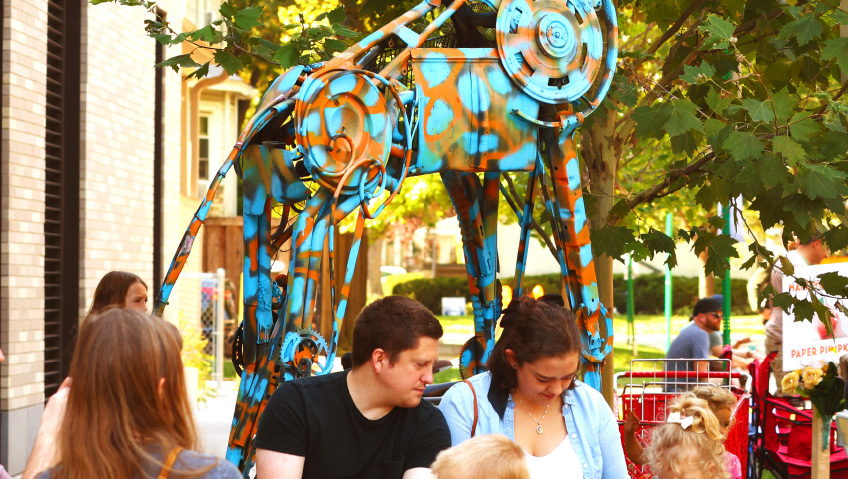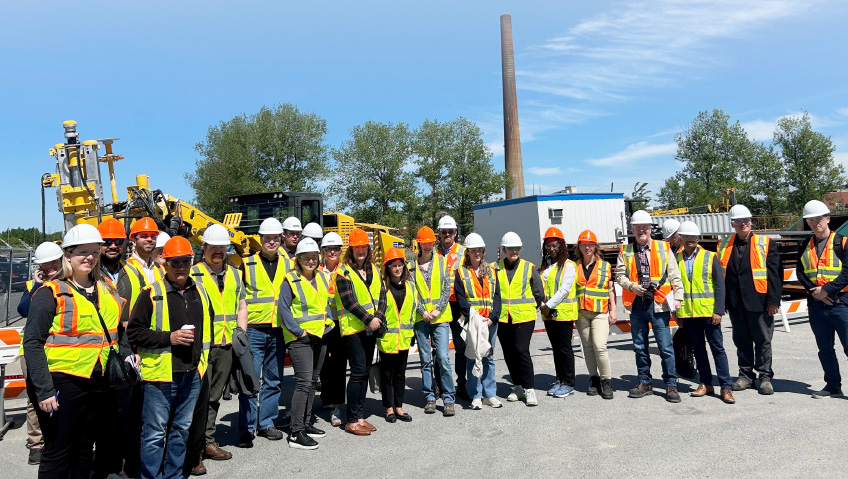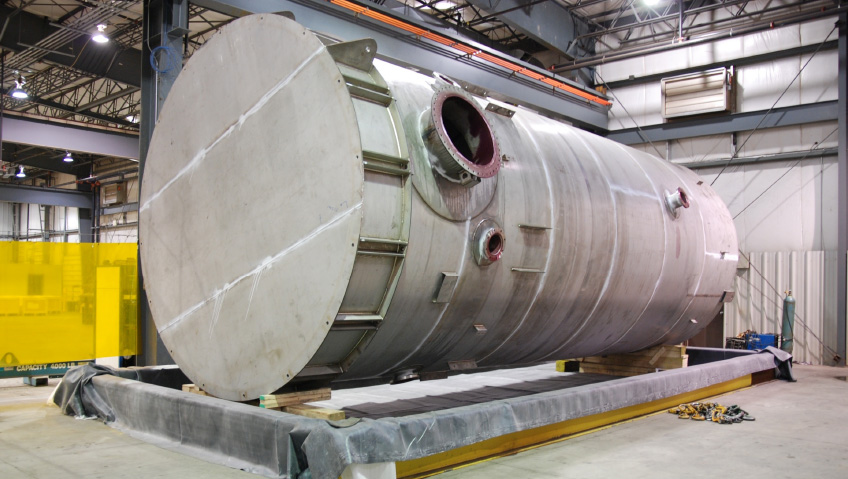Special-T delivers Grade-A tables at Grade-C prices through innovation, supply chain best practices, and a customer-first attitude. The company’s story began twenty years ago when Loren Rozeboom recognized an opportunity. As a furniture dealer, he saw a need for a budget table base, and as the father of a son struggling with addiction, he saw the need to give a second chance to people who had completed rehabilitation and were seeking employment.
“Loren couldn’t help his son, Steve, at the time,” President Brandon Rayburn says. “So he did the next best thing and started helping men from a local rehab facility called No Longer Bound. He started hiring them and helping them in their journey of getting back on their feet. Eventually, Steve came back around, and he got sober, and he started working for his dad again.”
The program has been a great success. Steve Rozeboom—who is now the owner of the company—is only one of many whose lives have been transformed. Rayburn joined the company and worked his way up to president after completing No Longer Bound ten years ago.
“I was trying to figure out what I was going to do,” he recalls. “Who was going to hire me? I’d basically burned my life down. I have a wife and three children, and they were very young at the time when I admitted that I needed to get help. After going through this program, I was a changed man. I was ready to get back to work, but I didn’t have any opportunities, and how was I going to explain a year-long gap of employment?”
The team stepped in to help. “Someone came to the facility and offered me a job at Special-T. They said, ‘We don’t know you, but we help people like you. Show up to this address, and we’ll see about hiring you.’ I didn’t know what I was saying yes to. I just needed a job, and someone was willing to offer me a job. I didn’t realize that this was literally the opportunity of a lifetime for me.”
“I didn’t set out to lead this company,” Rayburn remembers. “I set out to get my family back and to get a job and make up for the lost time. I got dignity restored, and I got people that believed in me when I didn’t believe in myself, and that’s what happens here every day when we get a chance to grow and invest in men and women.” The vast majority of these people use Special-T as a launch pad to another career. “I would say 95 percent of them go on, and this is just a stepping stone,” Rayburn says.
The commitment to hiring recovering addicts has been a boon to the company as well as to the employees. “We’ve grown year-over-year, sometimes to the tune of 40 percent,” Rayburn says. “We’ve had some extensive growth.”
The team has leveraged this growth to continue helping recovering addicts. “It’s allowed us to invest in ourselves.”
To date, Special-T’s workplace recovery program has helped around one hundred men and women. The company has not promoted the program until recently; however, at the urging of the people whose lives have been transformed by it, this is changing.
“It’s always just been an internal mission that we’ve done here,” Rayburn says. “We never really told anyone about it. But many of the recovery guys have urged the owners to really start talking about it more because it really is a differentiator and that ‘X-factor’ as to why people enjoy doing business with us. It really drives our company culture here, and the people here are amazing. They’re willing to run through a wall for this place—not just the recovery guys, but the people who see change in the recovery guys and see the value in working for a place that really focuses on helping people.”
The team believes that the need to support recovering addicts is greater than ever, particularly after the stress, fear, and isolation that COVID brought. “There’s an underlying epidemic that’s attached to the pandemic, this out-of-control addiction that has been fueled,” Rayburn says. “It’s almost as if it’s gasoline on the fire of addiction. We’ve seen all of the leading indicators rising.”
To increase its outreach capabilities, the team has increased its involvement with long-term recovery programs. “I recently accepted a position on the board of directors for the rehab facility No Longer Bound that I went through,” Rayburn says. “So we can now work with them on a closer level in order to create vocational training programs to have a seamless transition between a long-term recovery program and a workplace.”
“We do a lot of this organically anyway, but we’re putting together a framework so that, hopefully, it can be replicated because Special-T can only help so many people, but there’re so many people that need help. So we are really trying to be the tip of the spear when it comes to developing some programs that can be utilized at the state level and beyond, hopefully on a national level, to help drive recovery and next steps, allowing people to reintegrate into our community and to not only do well but become leaders.”
Of course, the business has to deliver superior service and products to keep growing successfully and keep providing jobs to people in recovery. One service that stands out is Special-T’s quick-ship program. “At Special-T, our standard lead times are fifteen days, but we offer a five-day program and a one-day program,” Rayburn says. “If you pick a certain size and color top that we stock here in our warehouse, and if you get your order in by two o’clock, we can get it out to you the next day. In order to support that, we need a robust supply chain and great connection and communication with our vendors.”
The team recently opened a factory in Bulgaria with the sole focus of servicing Special-T’s orders. The move came after Steve Rozeboom saw the need for a more reliable supply chain. “We were very dependent on Ukraine and China,” Rayburn explains. “Because our factory [in Bulgaria] is committed a hundred percent to the needs of Special-T, we are able to really dictate workflow and allow them to support all of our stocking needs in order to support a one-day program. We have had an uninterrupted supply chain. We can fulfill an order for a table in any size, any shape, any color.”
The Bulgarian factory was already servicing the bulk of Special-T’s orders before the recent invasion of Ukraine, where the other factory the team works with is located. Even so, the situation “created a challenge for us,” Rayburn says. “But our inventory didn’t hinge upon it. We have redundancy built into our stocking programs. We have a lot of safety measures in place.”
The team’s immediate reaction to the invasion was to support their partners. “The day that it happened, I FaceTimed the owner in Ukraine and said, ‘We are 100 percent committed to supporting you in anything that you can do. So the day that you’re able to produce and get a container out to us, we’re ready to take it. Keep them coming as much as you can. Until then we’re here to support you in any way that you need us to,’” shares Rayburn.
“They were able to get back up and running again within weeks of shutting down—and this is after the majority of their workers had fled the country. They pulled together in order to work. They wanted to work. They needed to work.”
Looking ahead, the team is eager to get the word out about Special-T’s most defining feature: supporting people in recovery. “We feel like there are not enough people that know what we do—and not just what we do, but the fruit of what we do,” Rayburn says. “If you come to visit us you’ll find a group of people who are fully committed to a cause and enjoy working at a place that has done so much for me personally, as well as for dozens and dozens of men and women. That really does drive us.”
Backed by a team with a true commitment to what the company stands for, Special-T is well placed to keep growing and accomplishing its mission.






